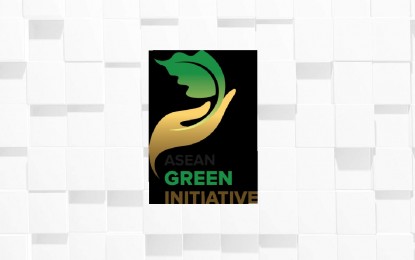
MANILA – The Association of Southeast Asian Nations (Asean) formally launched on Friday a region-wide program that would ramp up restoration efforts and plant at least 10 million native trees in a span of 10 years.
Called the Asean Green Initiative (AGI), the program will bring together different stakeholders to participate in an ambitious goal of planting at least 10 million native trees and regrow Southeast Asian forests.
“This landmark initiative for the Asean environment and ecosystem health germinated even before the pandemic began. This is even more crucial now as the region gears towards its long-term recovery from the ongoing health crisis," Asean Centre for Biodiversity (ACB) Executive Director Theresa Mundita Lim said in a virtual conference.
Lim said the initiative would recognize greening programs and tree-planting initiatives by individuals and groups from any Asean member states that positively contribute to the bloc's sustainable restoration efforts.
Qualified tree planting activities by participating communities or organizations could be documented and acknowledged as contributors to ecosystem restoration, combating desertification, halting land degradation, and curbing biodiversity loss in the Asean region.
The AGI awardees, meanwhile, will be widely promoted by the ACB through the official AGI website, regional and international events, exhibitions, and other communication platforms.
Proponents of selected AGI-recognized projects may also be invited to international conferences and events to share their greening practices that may be replicated by other individuals, communities, and entities.
'A bigger movement'
The launch and implementation of the AGI are aligned with the United Nations Decade on Ecosystem Restoration, a global movement to accelerate restoration goals and commitments, which commenced this year.
The campaign is a rallying call on the urgent need to prevent, halt, and reverse the degradation of ecosystems worldwide "to end poverty, combat climate change, and eliminate mass extinction."
According to ACB, Southeast Asia region plays a vital role in this global call since about 60 percent of the world’s tropical peatlands, 42 percent of mangroves, and 15 percent of tropical forests are located in Asean member states.
And while the region is known for its rich biodiversity, it is also vulnerable to climate-related risks and human-driven activities that drive biodiversity loss.
“Restoring the condition of our ecosystem to its healthy state will take a whole-of-society approach. Through concerted and collaborative efforts that support this initiative, we can achieve incredible results and transform a more sustainable future for the Asean community,” Lim said.
In the Philippines, the Department of Environment and Natural Resources (DENR) said there is an ongoing effort to select indigenous and endemic plants as reforestation species to ensure that the ecosystem and the wildlife that once flourished in the country's forests can also be restored.
DENR Forest Management Bureau Division Chief Ma. Teresa Aquino added that the country continues to map its degraded forest lands in order to prioritize its reforestation activities.
Aside from Manila, several Asean member states have already launched their own tree-planting movements like Singapore, which seeks to plant a million trees over a period of 10 years, and Malaysia with its 100 million tree-planting campaign. (PNA)
